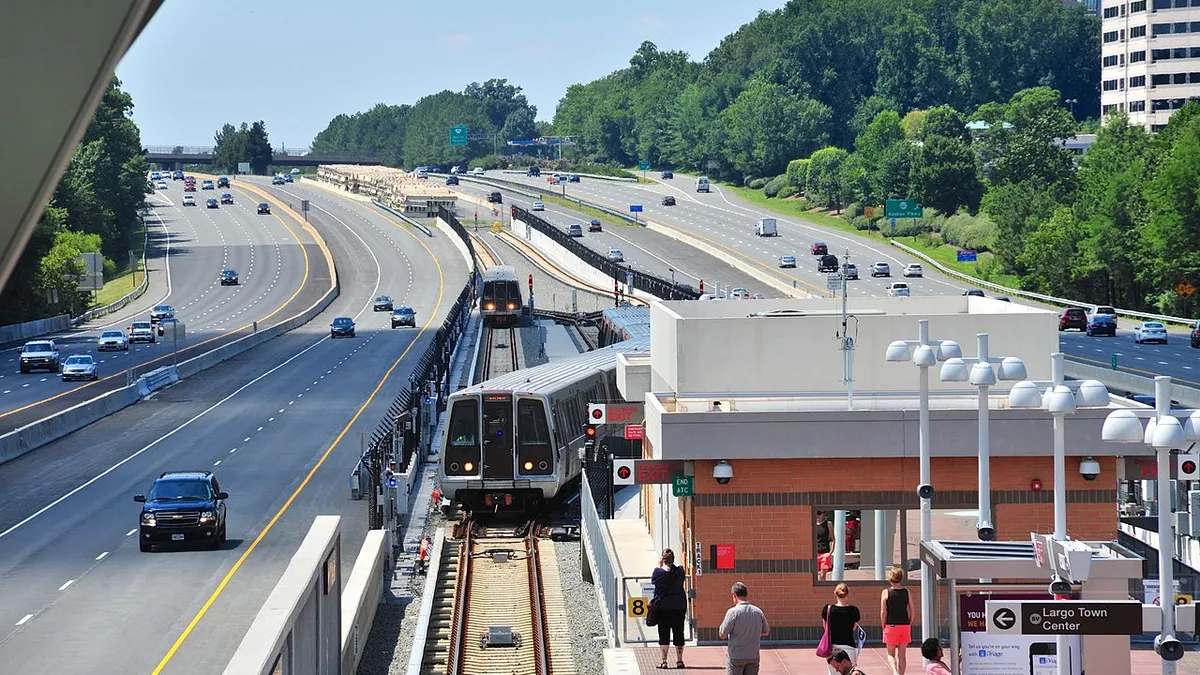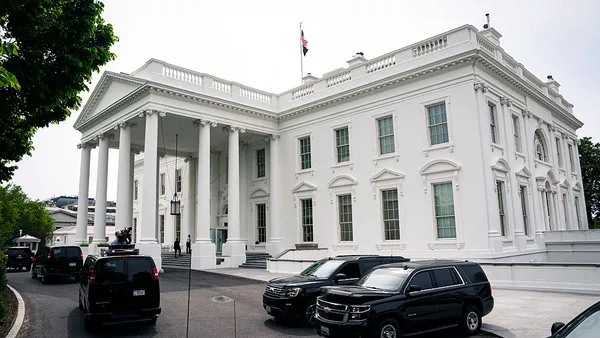Dive Brief:
- The $2.7 billion second phase of the Washington Metro's $5.8 billion Silver Line extension project could be looking at more delays thanks to alleged faulty concrete railroad ties, according to The Washington Post.
- In September, lead contractor Capital Rail Constructors (CRC), a joint venture between Clark Construction and Kiewit Infrastructure, determined that about 400 concrete railroad ties, installed where multiple sets of tracks meet, are up to one-half inch higher in the center than on the sides. This, according to Charles Stark, executive director of the Silver Line, could cause tracks to tilt outwards. CRC said the problem was one that could only be detected after installation. Manufacturer Rocla Concrete Tie said the ties meet the project's specifications.
- CRC has replaced some ties but has proposed using shims on the rest to even out the height. The Washington Metro and Metropolitan Washington Airports Authority, which is the agency in charge of Silver Line construction, have dismissed the suggestion as too maintenance-heavy. The project is already 13 months behind schedule and negotiations around how to resolve the tie issue could set it back even further. Stark told The Post that CRC will be responsible for any additional costs involved in fixing the problem with the ties.
Dive Insight:
This is the latest in a line of concrete problems that have beset the Silver Line expansion project. More than three years ago, CRC found cracks in the line’s support girders near the Dulles International Airport. NBC 4 Washington reported earlier this year that 60 girders had displayed the cracks, some of which were up to 18 inches long and several inches wide, but the issue was resolved about a year after the cracks were discovered.
This year, CRC and the airports authority found 1,750 defective concrete panels used during station construction. CRC replaced 115 of the panels, which were manufactured by Universal Concrete Products at its factory in Pennsylvania. As for the rest, crews will treat the panels every 10 years with a protective coating to mitigate the effects of an incorrect water-to-cement ratio. The panels don’t pose a safety risk, but without the coating they are more susceptible to cracks and rust resulting from water seepage.
The U.S. Attorney’s Office for the Eastern District of Virginia last week secured a judgment of more than $700,000 against Andrew Nolan, former quality control manager for Universal, after he pleaded guilty to falsifying test results for the mix used to make the panels.













